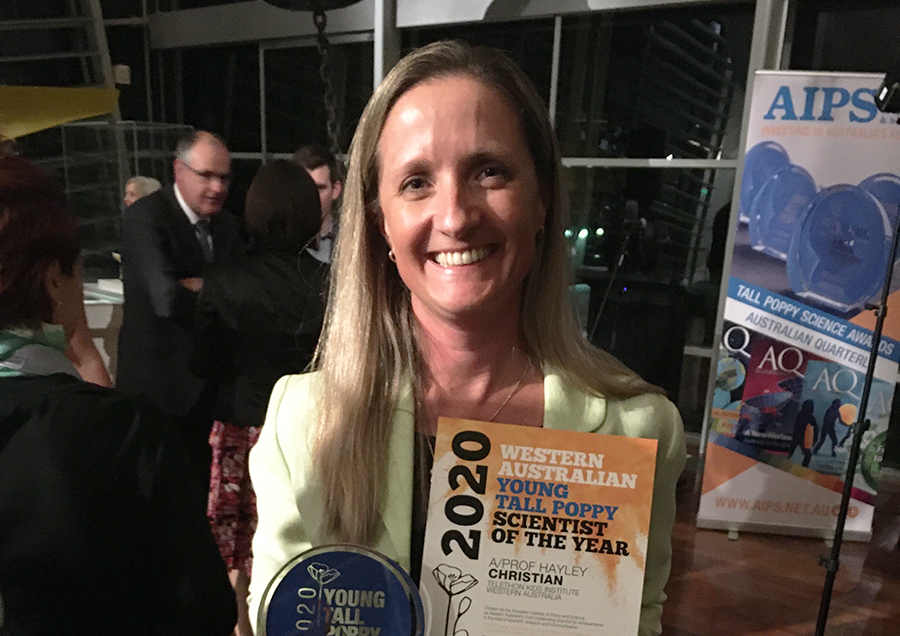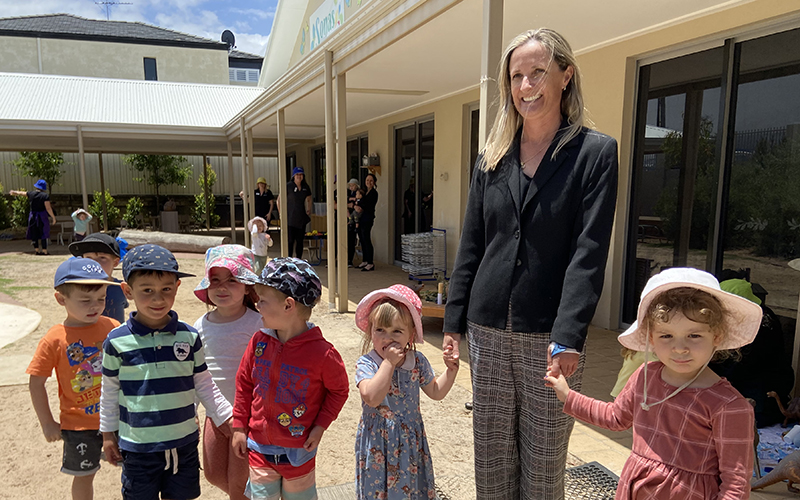Search

News & Events
Healthway supports innovative mental health, physical activity research at The KidsThe Kids Research Institute Australia and The University of Western Australia researchers have been awarded more than $1 million in funding from Healthway, for projects to improve the mental health of LGBTQA+ young people, encourage early physical activity in childcare centres and create healthier local environme

News & Events
Up and at ’em: The Kids physical activity researcher named a WA Young Tall PoppyA The Kids Research Institute Australia researcher focused on promoting more active childhoods to improve child health and wellbeing will be named amongst WA’s most outstanding young scientists at the upcoming 2020 Young Tall Poppy Science Awards.

News & Events
The Kids researcher takes out top prize at 2020 WA Tall Poppy Science AwardsThe Kids Research Institute Australia and University of Western Australia physical activity researcher Hayley Christian has been named Young Tall Poppy Scientist of the Year at the 2020 WA Young Tall Poppy Science Awards.

News & Events
Childcare centres urged to adopt new policy to boost kids’ physical activityChildcare centres will be invited to help boost children’s physical activity levels by signing on to a new program which commits them to creating more opportunities for physical activity.

News & Events
Pre-term kids get green light to exerciseParents of children born prematurely have expressed concerns about their child’s lung health when they exercise, with symptoms such as breathlessness.
Research
Improving physical activity and screen time in Australian Outside School Hours Care: Study protocolChildren's physical activity and screen time behaviours impact their physical health and well-being. In Australia, less than half of children meet daily physical activity recommendations and only one-third meet daily screen time recommendations.
Research
Residential mobility amongst children and young people in Wales: A longitudinal study using linked administrative recordsChild poverty remains a major global concern and a child's experience of deprivation is heavily shaped by where they live and the stability of their local neighbourhood. This study examines frequencies and patterns of residential mobility in children and young people at a population level using novel geospatial techniques to assess how often their physical environment changes and to identify geographical variations in social mobility.
Research
Using Focussed Ethnography to Observe and Understand the Actions and Interactions of People With Prader-Willi Syndrome When They Exercise at a Community Gym: A ProtocolExercise for people with Prader-Willi syndrome (PWS) is important for their health and wellbeing and can provide opportunities for community participation. However, they may find it difficult to participate in some contexts, such as community gyms because social and environmental barriers in these settings may compound difficulties caused by physical impairments or intellectual disability.
Research
Investigating the Feasibility and Acceptability of a Facebook Delivered, Parent Mediated, Physical Activity Intervention for Children with Developmental Coordination DisorderChildren with Developmental Coordination Disorder (DCD) experience difficulties performing fundamental movement skills, resulting in reduced physical activity (PA). Given low PA can impact mental and physical health, improving PA in DCD appears imperative. This study investigates the feasibility of a Facebook delivered, parent mediated, PA intervention for children with DCD.
Research
Scalability and scaling-up strategy of a physical activity policy intervention in Australian childcare centresThere is an urgent need for scalable interventions to promote physical activity in early childhood. An early childhood education and care physical activity policy intervention with implementation support strategies (Play Active) has been proposed for scale-up in Australia.
